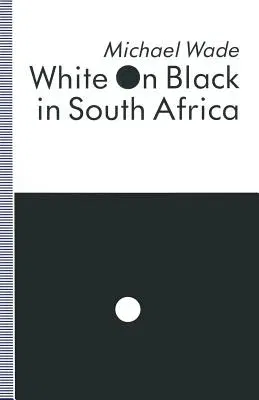Michael Wade
(Author)White on Black in South Africa: A Study of English-Language Inscriptions of Skin Colour (1993)Paperback - 1993, 1 January 1993

Qty
1
Turbo
Ships in 2 - 3 days
In Stock
Free Delivery
Cash on Delivery
15 Days
Free Returns
Secure Checkout
Print Length
175 pages
Language
English
Publisher
Palgrave MacMillan
Date Published
1 Jan 1993
ISBN-10
1349225487
ISBN-13
9781349225484
Description
Product Details
Author:
Book Edition:
1993
Book Format:
Paperback
Country of Origin:
NL
Date Published:
1 January 1993
Dimensions:
21.59 x
13.97 x
1.09 cm
ISBN-10:
1349225487
ISBN-13:
9781349225484
Language:
English
Location:
London
Pages:
175
Publisher:
Weight:
244.94 gm

